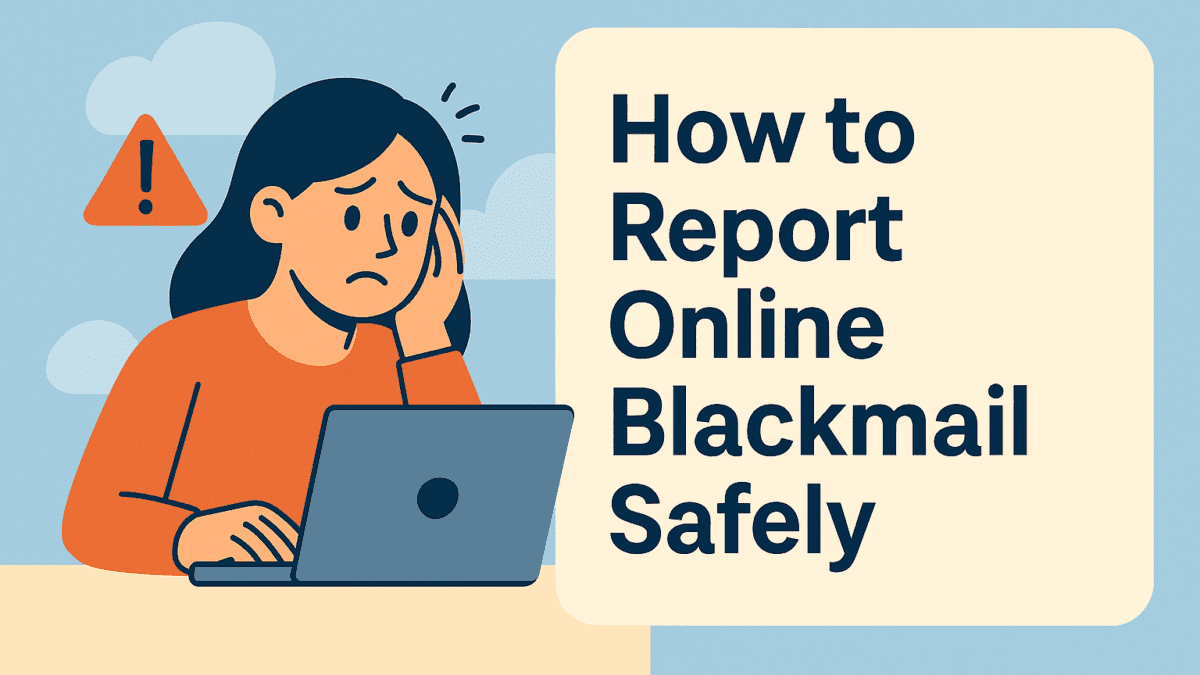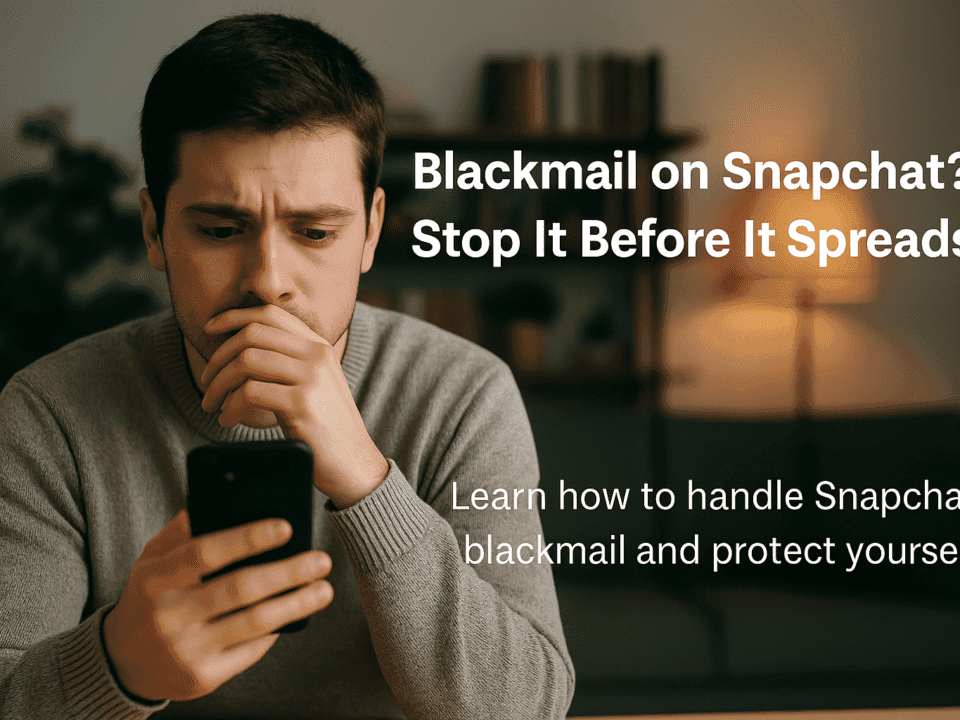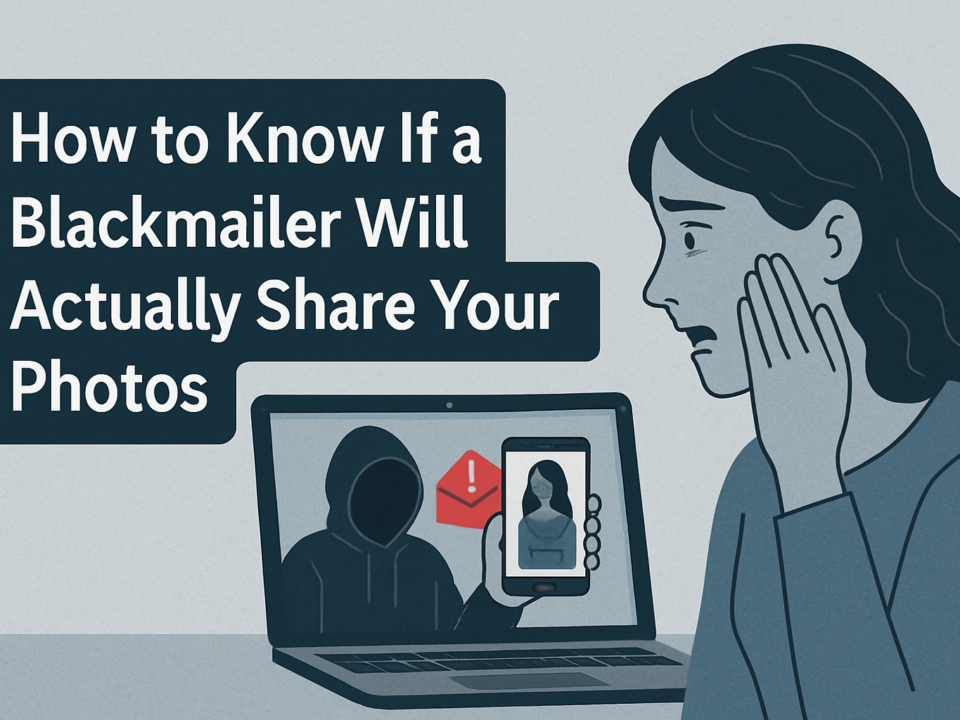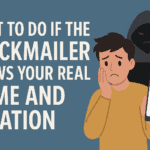
What to Do If the Blackmailer Knows Your Real Name and Location
June 19, 2025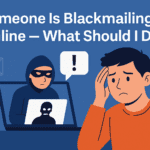
Someone Is Blackmailing Me Online — What Should I Do?
June 19, 2025When You’re Being Blackmailed Online, Reporting Isn’t Always Simple
It sounds easy on paper:
“If you’re being blackmailed, just report it.”
But if you’re the victim — panicked, exposed, and unsure of what comes next — it’s not that simple at all.
Most people don’t hesitate to report stolen credit cards or hacked accounts. But when it comes to private photos, explicit chats, or something personal?
Shame and fear take over.
You worry about what the blackmailer might do if you take action.
Why Most Victims Never Report It
You’re not alone if you’ve kept it quiet.
Many people don’t report online blackmail because:
They’re scared the blackmailer will retaliate
They don’t want family, partners, or employers to find out
They’re not sure if police will even care
They feel embarrassed or think it’s somehow their fault
But silence can sometimes give the blackmailer more control.
Knowing how to report — and when — is key.
Is It Even Worth Reporting Online Blackmail?
Yes — but it depends on how you do it.
If you’re asking yourself, “Should I report online sextortion or not?”, consider this:
Reporting can help build legal records
In some countries, police have cybercrime teams to investigate
Certain platforms respond faster if there’s an official complaint
However, it’s also true that reporting too early — without understanding the risk — can make things worse. Especially if:
You use your real email or account
You alert the blackmailer that you're involving authorities
You don't understand how they might react
How to Report Online Blackmail — The Smart Way
Here are a few things to consider before reporting:
Secure Your Accounts First
Change passwords, enable 2FA, and lock down public profiles.Avoid Alerting the Blackmailer
Don’t tell them you’re reporting them. That’s when they often escalate.Gather Evidence (Quietly)
Screenshots, usernames, chat logs, payment requests — save everything.Decide Who You're Reporting To
Social media platforms? They’ll remove abusive accounts.
Police or cybercrime unit? They may ask for a statement.
A professional blackmail response team? They can guide you safely.
Not sure what route is best for you?
Get help removing blackmail threats here.
What Happens After You Report?
Some platforms take quick action. Others may be slow or require official legal complaints.
Police responses vary too — especially depending on where you live. In the EU, UK, and parts of the U.S., cybercrime units do investigate sextortion cases. But for that to happen:
You need to present clear evidence
And often, you need to show that you’re not engaging further with the blackmailer
Some victims choose to report anonymously or through a trusted third party. That’s okay too — the key is getting control back.
What If You’ve Already Paid or Sent More Content?
Many victims make snap decisions in panic — sending money or more photos. If that’s you, know this:
You still have options.
This guide for victims who sent private photos can help you understand next steps, regain emotional balance, and avoid further damage.
You’re Not Alone in This
Reporting online blackmail isn’t about being brave or strong.
It’s about choosing the next right move — not the loudest one.
Whether or not you report it to police, you deserve protection.
You deserve your privacy back.
You deserve peace of mind.
➤ Talk to a real expert in blackmail removal — confidential and fast

